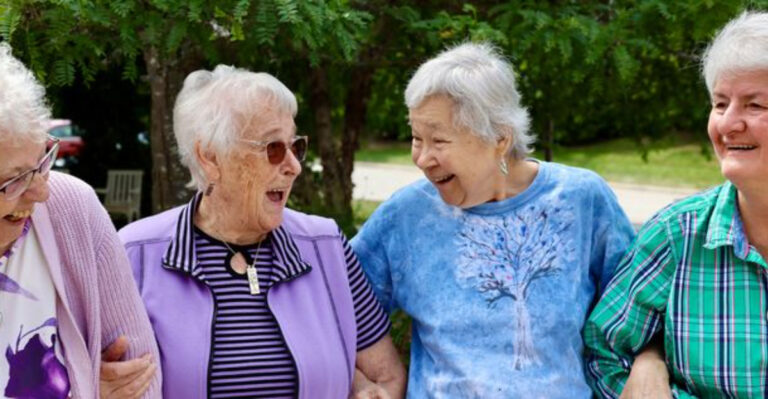Time Heals All Wounds (Or Does It Really?)
Whenever you’re going through a painful situation and experience something that will definitely leave a permanent stretch mark on your broken heart and soul, you probably hear some typical phrases from your family, best friends, and everyone surrounding you.
It doesn’t matter if you are going through some mental health problems, have lost a loved one, didn’t succeed in your lifelong dream, have lost your best friend or life partner, or in the middle of a heartache or family emergency, the fact is that most people use similar clichés to comfort you.
They tell you things they assume you want to hear.
That one day your heartbreak will be a part of the past, that you’ll manage to overcome your emotional pain, that those difficult times will go away, and that the bad emotions won’t get the best of you.
They tell you that everything will be better and the good times will come (even in situations where the light at the end of the tunnel cannot be seen), that you’ll be stronger (even when all you want is to give up), that everything will eventually go away (even when you’re convinced that this overwhelming pain will consume you forever), that everything happens for a reason and a greater cause (even when there is obviously nothing good in this evil that life threw at you), that one day you’ll laugh at all of this (even when you’re struggling to not start crying at this exact moment) and that you’ll eventually learn a valuable lesson from this heartbreak (even when you have no desire to be taught any lessons).
Of course, people are telling you all of this simply because they don’t know better.
They see that you’re a wreck, but can’t do anything concrete to help you fix your emotional wounds – which sometimes hurt the same as physical wounds – so they say these seemingly empty phrases because that’s the only choice they have left.
However, sadly, in most times, all of these clichés often have a completely counterproductive impact on the person hurting, albeit said with the best intentions and that everyone telling you these things is well-meaning.

When you hear them, you get annoyed because you’re pretty much sure that the person doesn’t mean it.
You get frustrated when people who haven’t walked a mile in your shoes try to convince you that your hardships are not such a big deal.
Not only that, you also feel pressured, as if they’re telling you to hurry up with this recovery and giving you some kind of a deadline by which it would be socially acceptable for you to get over whatever’s bothering you and for your heartache to be gone.
Yes, there are numerous clichés you hear from well-meaning people when you’re going through a difficult time and trying to heal from emotional wounds.
Nevertheless, “time heals everything” is the most common one, without doubt and without competition.
However, does the passage of time really heal? Does time have the ability to make you feel better?
Does it bring good times and is it successful in healing wounds?
Is it indeed enough to allow some time and let it do its magic? Or is this nothing but empty rhetoric?
Well, we’re here to find out.
Does Time Really Heal Everything?

Even though many agree with this theory, there are even more who think otherwise.
Namely, the truth is that time doesn’t have a magic wand that will make all of your problems disappear.
Yes, when you suffer from a broken heart or when something even more devastating happens to you, you probably won’t spend your entire life crying over it and suffering with the same intensity.
For example, when your loved one dies, at first, you feel like your life has ended as well.
You feel like you can’t breathe and as if this pain will always consume you with the same severity.
However, after a while, it appears that the pain starts to fade away. After a while, it transforms into some kind of numbness.
Yes, this loss still hurts you every single day, but somehow, after a lot of effort, you learn to function in the real world.
Whether you like it or not, you wake up every day, go to work, eat, engage with other people, start to sleep better, return to your old hobbies and interests…
Finally, one day, you catch yourself smiling or even laughing at some random thing.
You catch yourself waking up in the middle of the night, without feeling like you’re covered in physical wounds, as if there’s a huge, sharp knife stabbed in your stomach.

So, basically, life went on, as much as you probably tried to subconsciously fight it. You continued living and existing and the good emotions won over.
You survived. It seems that you’ve moved on and gotten over everything.
However, does that mean that you’re fully recovered? Does that mean that your heart has healed, just because you don’t have trouble getting out of bed every single day?
Or have you just became numb? Did the pain cease to exist or did you just learn to live with it?
Well, the truth is that, in these case scenarios, you’re never fully healed, no matter how much time has passed.
After all, it still aches every time you think of your loss or your heartbreak.
So, no, the emotional pain doesn’t go away, you just learn to live with it. You get used to your scars and they become an inerasable part of you.
The pain is no longer the only thing you feel and it definitely stops defining you, but it is certainly still present.
You just learn to cope with it, silence it, and ignore it.
Even when you do feel better, it is not time’s work. Even when you heal, it’s not time that gets the credit, you’re the one who does it.

Maybe you learn some valuable lesson; maybe life happens.
Perhaps you understand that everything happens for a reason or you grow as a person who is now capable of handling everything bad she’s experienced.
Maybe you get even deeper emotional wounds, so those from the past become foolish.
It could be that you’ve become stronger and braver or you’ve thought things through and realized they’re not worthy of your tears.
However, you were the one who took the initiative. Yes, time might have helped you in the process, but you’re the deserving one.
You’re the one who took your entire life in your own hands and did all the work your own way, with time as your ally.
The one who saved your mental health, who realized that letting go is the only option you have, who accepted the things you couldn’t change, who decided to rise above the pain.
So, yes, time might serve you as an effective painkiller.
The passage of time might serve you as an assistant in healing wounds and it will surely be your best friend while you’re trying to recover.
But it is never the ultimate healer.
Time Heals All Wounds Meaning

When someone says that time cures everything, it literally means time erases the pain.
It means that sometimes, you are hurting and going through a healing process at the same time – that you are actually doing better with each day that passes, usually without even being aware of it while it’s happening.
It means that no matter the pain you’re feeling, the grief that’s consuming you, and the hardship you’ve been through, things will eventually be okay – you just need to give it some time. Time for the healing process to take its course.
Time for you to realize that letting go is something you have to do. Allow time for negative emotions to fade away, for your emotional wounds to turn into scar tissue, and for those scars to completely disappear.
In fact, what you have to do is give yourself some time – to process things, accept them, forgive, get over something or someone, forget, and move on.
This phrase is telling you that nothing happens overnight. That physical, mental, and emotional recovery is a healing process that lasts and you can’t force it.
Of course, this doesn’t apply to sorrow and sadness only.
When time passes, it also takes away the anger and resentment, it removes some trust issues or abandonment traumas you might have.
This saying is trying to give you hope that nothing is permanent.
Hope that you definitely won’t be feeling this way – that time will fix you, if nothing else does.
So, basically, whatever you’re experiencing, the bottom line is that it will go away.
However optimistic this might sound when it comes to the bad things, it is also quite depressing when it comes to positive emotions and states because according to this logic, they will go away too, right?
Time Heals All Wounds Origin

Wherever you look, you see someone with a time heals all wounds tattoo, quote, bumper sticker, social media post…
However, you might wonder who said time heals all wounds quote first? What are the origin and historical background of this phrase?
Well, even though there is no exact data regarding this, there are some assumptions about who the first one who told this famous sentence was and how it became a proverb in many languages around the world.
According to some sources, Glenn McCormick was the name of the man who once said “God heals all wounds.
” Nevertheless, after a while, the word God was replaced by time and that is how we got today’s form of this sentence.
Naturally, something optimistic and positive like this appealed to the masses. It gave them faith in a better tomorrow and strength to carry on.
It was a silver lining to many people’s cloud, so it’s no wonder this phrase not only stuck in many cultures, but also became so powerful and common.
Time Heals All Wounds Bible

The notion that when time passes, it becomes the healer, is present in many religions and especially in Christianity.
Even though the Bible never explicitly states this exact sentence, it certainly does advise patience and gives hope.
For example, in the words of the Psalm 147:3: “He heals the brokenhearted and binds up their wounds.”
Here, it is implied that God is the one who cures all the wounds, instead of time itself.
Also, in Jeremiah 33:6, it is said: “Behold, I will bring it to health and healing, and I will hear them and reveal to them abundance of prosperity and security.”
Without doubt, the most important word in this sentence is BEHOLD, which is basically telling the believers not to expect a miracle to happen overnight.
So, based on all of this, one can conclude that time alone doesn’t have the necessary power to cure the believers and that time does not heal you. Instead, Jesus Christ sometimes needs time to save them because, according to the Bible, he is the only real healer.
Time Heals All Wounds Quotes

There are numerous deep and inspirational quotes on time heals all wounds. Here are some of the most motivational ones:
They say time heals all wounds. Let me tell you, time heals nothing.
You can do the wrong thing for 10 years and it doesn’t equal the right thing for one day. – Phil Mcgraw
It has been said, time heals all wounds. I do not agree. The wounds remain.
In time, the mind, protecting its sanity, covers them with scar tissue and the pain lessens. But it is never gone. – Rose Kennedy
Time heals griefs and quarrels, for we change and are no longer the same persons.
Neither the offender nor the offended are any more themselves. – Blaise Pascal
Time may heal all wounds, but it does not erase the scars. – Jane Yolen
I’ve learned… That love, not time, heals all wounds. – Andy Rooney
Who said that time heals all wounds? It would be better to say that time heals everything – except wounds. With time, the hurt of separation loses its real limits.
With time, the desired body will soon disappear, and if the desiring body has already ceased to exist for the other, then what remains is a wound, disembodied. – Chris Marker
The defects and faults of the mind are like wounds in the body; after all imaginable care has been taken to heal them up, still there will be a scar left behind, and they are in continual danger of breaking the skin and bursting out again. – Francois de La Rochefoucauld
Time does not heal all wounds. It just puts more space between the times you remember the events that gave you those wounds… There are some hurts that never stop hurting no matter how faded are the scars. – Charles Watson
Time doesn’t, as advertised, heal wounds. Although the wrenching immediacy of grief eventually passed, the settled sorrow that replaced it might in its own way be even more intense. – Dean Koontz








